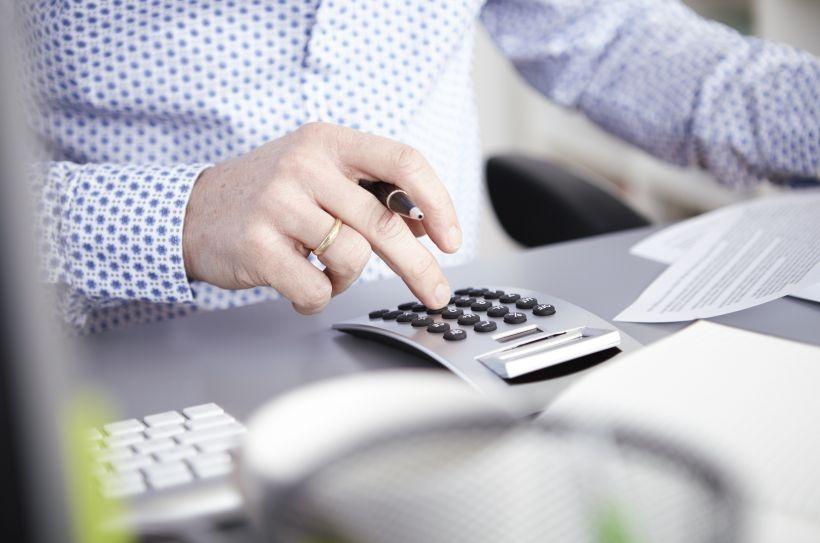When do you have to pay a surcharge for delays - the most important innovations in 2019:
Not observing deadlines will be more expensive: When do you have to pay a late fee - The most important innovations in 2019 - Image: detailblick-foto - stock.adobe.com
When do you have to pay a late fee
Anyone who submits their tax return late from this year must expect a late fee. Since 2019, the tax authority has no longer had any so-called "discretionary power" in this context. This also applies to the "reminders" that the tax office usually sends to latecomers in autumn. Anyone who has to pay taxes as a pensioner is usually spared late payment penalties. However, you have no legal right to do so.
The answer to the basic answer to the question of when you have to pay a late fee is regulated by the Fiscal Code (AO). The regulation for latecomers is laid down in § 152 paragraph 2 number 1 (AO):
The 2nd paragraph of paragraph 152 AO is now mandatory. This means that the tax office loses its so-called “discretionary scope” here. In the past, the authorities could deal with latecomers according to their judgment. By the way: If the tax office has approved an application for an extension of the deadline that was submitted in good time, then of course the authority will not charge a late fee.
An example: when do you have to pay a late payment fee
The legislature has extended the deadline for submitting the tax return by two months since the 2018 tax year. Income tax returns must now be submitted “no later than seven months after the end of the calendar year”, according to the Income Tax Act (§ 149 Para. 2 EstG). In other words: the documents must be submitted by July 31 at the latest.
But when do you have to pay a late fee - an example:
For example, a taxpayer only completes his 2018 tax return in mid-March 2020. He must then reckon with the late surcharge in any case. The tax office invoices each started month of delay from July 31, 2019. That is 8 months in total in the example. 0.25 percent of the assessed tax is due for each month, but at least 25 euros per month. In this example, this means that the taxpayer who came too late must pay at least an additional 200 euros.

As to the question of when do you have to pay a surcharge for delays: is this due in any case?
In principle yes. But: The tax code only prescribes the late payment surcharge if you also have to pay taxes afterwards. So: If the tax amount is zero or a minus amount (refund), then the authorities do not necessarily have to demand a surcharge. Here the tax office regains its discretionary powers. And that means, for example: Anyone who is late with their income tax return for the first time “may get away with it”. However, anyone who repeatedly fails to comply with the submission deadline must expect a late fee.
The tax office used to have more leeway when it came to the amount of the late payment penalty. The surcharge could also be lower than the current 25 euros/month. There used to be only one upper limit, which was 10 percent of the assessed tax. All of this is no longer valid. From 2019, the minimum amount will be EUR 25 per month of delay, and the Treasury has set the maximum at EUR 25,000.
And what about a request from the tax office - when do you have to pay a late fee
In autumn, the tax office sends letters to numerous taxpayers who have not met the deadline. What many call a “reminder” can shorten the period of 14 months. Usually, the request to submit a tax return now includes a new deadline. If you let the time pass without doing anything, you have to reckon with the automatic late payment surcharge again. However, the tax office's request must meet formal criteria. For example this: The request to submit the tax return must be justified.
If the request does not meet the criteria, you can generally appeal against the late payment penalty. Whether this makes sense should be checked individually in each case.
More on the subject of late payment penalties:
I am a pensioner, when do I have to pay a surcharge for late payment
Many pensioners receive surprising mail from the tax office. In many cases, the authorities require a tax return, often several, for years that are further back. Back taxes are often due as well. The reason for this is that every pension increase is added 100 percent to the taxable portion of the pension. Over the years, the amounts add up and then trigger the tax liability. In 2019, around 48,000 additional pensioners became subject to tax again. This leads to uncertainty among many retirees. Unfortunately, there is no simple rule of thumb that a layperson can use to calculate when pensioners will have to pay taxes again. If in doubt, retirees should contact an income tax assistance association or a tax advisor.
When do you have to pay a late payment surcharge if you have to pay taxes as a pensioner? As a rule, those affected can assume that the tax office will not charge a late fee. Because the tax code contains a so-called “pensioner regulation”: “If he could assume that he would not have to submit a tax return before this request was received” (§ 152 Paragraph 5 Clause 3 AO), then the authority does not demand a late payment surcharge. A legal claim to this In the opinion of the wage tax assistance association, however, the procedure cannot be derived from the regulation in the tax code.
When it comes to when do you have to pay a late payment surcharge, the question arises about interest
Regardless of the late payment surcharges for late filing of the tax return, the subject of interest is interest. If an additional tax payment is due, then the authority also calculates interest from the 15th month of delay. These amount to 0.5 percent for each subsequent full month of delay. The tax office also calculates interest on a tax refund. However, these are credited to the taxpayer. Here, too, the amount of the interest credit is 0.5 percent for each full month of delay. Anyone who has their taxes done by an income tax assistance association or a tax consultant will benefit from an extension of the deadline. In that case, the tax return does not have to be submitted until the last February of the second year following the tax year. So the 2018 tax return does not have to be submitted until the end of February 2020.
More posts on tax interest rates need to be lowered
ShareWhen do you have to pay the late payment surcharge - the most important innovations 2019ultima modifica:2021-08-19T17:04:47+02:00da Red. Income Tax Assistance Association











Test winner at Stiftung Warentest:...
How to get the perfect look for Cos...
Dry elbows: This is how brittle ski...
Cream for Rosacea: The Best Creams